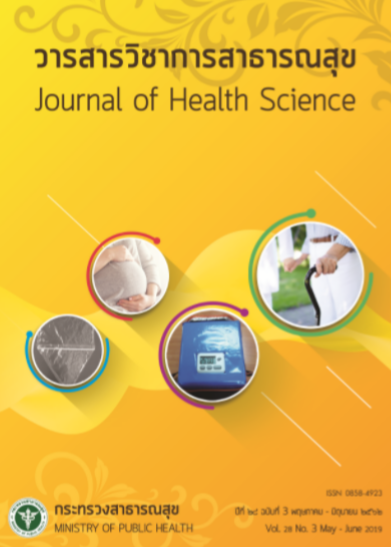Development of a Prototype for Promoting the Use of Herbal Medicine in Households in Thailand
Keywords:
prototype advancement, herbal medicines, Med KitAbstract
The objectives of this study were to develop a prototype model for promoting the use of herbal medicine in households in Thailand; and assessing knowledge, attitude and practice of people who decided to selecte herbal medicine for the treatment of illnesses; as well as to compare the illnesses, treatment methods and expenses before and after the implementation of the model. It was conducted as a quantitative and qualitative research between November 2008 – August 2010. The process began by selecting herbal medicines from national list of essential medicine, household remedy and formularies in hospital that were frequently used and accepted in the same form as the modern medicine for easier use; and compiled them in a form of Med Kit. The model utilized the mechanism of primary health care by village health volunteers (VHVs) as assistants to monitor drug usage and provide guidance for villagers. The study sites and the househld samples of herbal medicine users were selected from 4 target provinces, one district per province, in all geographic regions using stratified sampling: Chiang Rai for the northern region, Sisaket for the northeastern region, Suphan Buri for the central region, and Surat Thani for the southern region. A total of 1,366 households were recruited; and one VHV was responsible for 10 households. Data were collected by in-dept interview, focus group discussion of the village health volunteers, both before and after the model implementation. It was found that after applying the model, the attitude for the use of herbal medicine for initial treatment of illnesses increased from 66.20% to 85.40%; the practice of using the herbal treatment increased from 66.60% to 91.20% after 6 months of the implementation; and the rate of herbal medicine use was at 92.30%, or 6.1 episodes per household. The effectiveness of treatment was found to be at 45.52% for the cure rate, 47.17% for recovery rate, and the symptoms were subsided within 1-3 days (63.42%) or 4-6 days (13.37%). The most commonly used herbal drug was Indian gooseberry cough syrup. The expenses of herbal medicine were paid to the VHVs after treatment; and was successfully collected at the rate of 97.80%. Based on the research findings, it revealed that the model was 4 times more cost-beneficial that the modern medicine.
Downloads
Downloads
Published
How to Cite
Issue
Section
License
Copyright (c) 2019 Journal of Health Science - วารสารวิชาการสาธารณสุข

This work is licensed under a Creative Commons Attribution-NonCommercial-NoDerivatives 4.0 International License.







